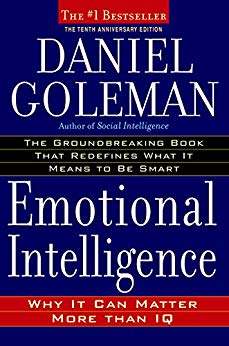

This article is an excerpt from the Shortform summary of "Emotional Intelligence" by Daniel Goleman. Shortform has the world's best summaries of books you should be reading.
Like this article? Sign up for a free trial here .
What is stonewalling in marriage? How does stonewalling happen by boyfriends, husbands, wives, and girlfriends?
Learn why stonewalling happens, examples, and how to deal with it.
Stonewalling Starts in Childhood
Emotional differences may be partially biological, but they are undeniably social. Boys and girls are taught different lessons about how to handle their emotions. Here are the basics:
- Generally, parents discuss emotions more with daughters than sons, excepting anger. Mothers discuss emotions with daughters, and discuss them in greater detail than with sons.
- Boys are not encouraged to verbalize their feelings, and they’re not usually taught how–this can cause them to develop a blindness to their own emotional states and others’.
- Sons are more likely to receive detailed stories and instructions on anger. This is perhaps because boys and girls drift into different ways of handling anger at the onset of puberty.
Stonewalling in Relationships
The fight or flight response comes into play when partners attack each other: the attacked partner can choose to either fight the criticisms, usually leading to a shouting match, or they can choose to flee the emotional situation, retreat emotionally, and respond with a stony, silent withdrawal. This withdrawal is called stonewalling. On the other end of the spectrum is flooding.
In Gottman’s research, stonewalling showed up in marriages that were headed towards failure. Where yelling might be an indicator that both parties care about something and are trying to work it out between them, stonewalling is a sign that there’s less chance of working out differences or disagreements, since one party refuses to participate emotionally at all. 85% of the time stonewalling showed up in a relationship, it was husbands and not wives who used stonewalling as a response to criticism.
Contempt, accusations, and toxic thoughts create a constant state of crisis in a relationship, routinely triggering emotional hijacks and making it more difficult to bounce back from these negative emotional states. Gottman uses the term flooding for this state of affairs.
- Someone in a flooded state is overwhelmed by negativity. They feel swamped by volatile feelings outside of their control. They regress to more primitive reactions, and can’t take in information or organize their own thoughts effectively. The more a person is flooded, the harder it becomes to resurface.
- First, the heart rate increases, then hormones such as adrenaline flood the brain, then muscles tense, and a sea of toxic thoughts comes crashing down on the flooded person.
Men react to spousal criticism with flooding more often than women, and enter into a flooded state at lower levels of negativity than women. Men also release more adrenaline into their bloodstream when flooded, meaning it takes them longer to recover from flooding. This is why men are more likely to stonewall their wives: to avoid flooding.
- However, upon being stonewalled by their husbands, wives’ heart rate will shoot up, and they become flooded.
Perhaps because women are generally more comfortable with emotions, they also on average will get into a marital argument more readily than men will. One study found that women didn’t mind getting upset during a disagreement, where men were uniformly averse to it.
- Wives seek out confrontation to achieve emotional connection, which is why stonewalling sends them into a flooded state. But men avoid confrontation to avoid emotional distress, which is why criticism activates their flooded state. This can turn into a vicious cycle.
———End of Preview———

Like what you just read? Read the rest of the world's best summary of Daniel Coleman's "Emotional Intelligence: Why It Can Matter More than IQ" at Shortform . Learn the book's critical concepts in 20 minutes or less .
Here's what you'll find in our full Emotional Intelligence summary :
- What are emotions? Why do we have them?
- What is emotional intelligence? Why is it important?
- How do you manage your own emotions? Anger, anxiety, and sadness?
- How can you approach your relationships with more emotional intelligence?
- How can you teach your children emotional intelligence?
- How can emotional intelligence boost your career?






